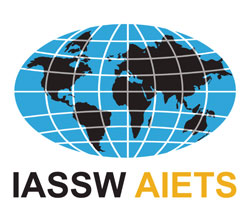The Impact of COVID-19 on the Afghan Refugees in New Delhi
By Mina Shokori, Social Work Student, Delhi University
In the wake of the Covid-19 pandemic, the lockdown has put all Afghan Refugees at risk in terms of their financial, mental, and physical health. Afghan refugees living in India aren’t officially recognized by the Government of India (GoI), so they bear the brunt of the crisis in seeking to survive in that country. However, the GoI permits the United Nations High Commissioner for Refugees (UNHCR) to work for the protection of the interests of Afghan refugees in Delhi. As the city enters the 5th phase of lockdown, living a hand-to-mouth life existence, most of these refugees who reside in the national capital struggle to meet their basic necessities.
I am a trainee social worker who conducted telephone interviews with a few Afghan refugees living in different parts of Delhi, to understand the impact of the lockdown on their livelihoods and the roles played by the GoI and UNHCR in supporting them during the crisis in terms of providing income support and access to health facilities.
Before the lockdown, one man had found a temporary job as a translator and helped newly arriving families to find accommodation. Some Afghan Refugees received financial support from their relatives abroad. However, after the lockdown some people lost their jobs and faced difficuies in receiving financial support from supporters overseas as this was mainly sent via informal means.
Another refugee family used to sell fruits and vegetables. After the lockdown, they struggled to meet their needs in the absence of any alternative form of income support. Other families shared similar pain during the lockdown as they had to shut down their shops. Another family used to sell second-hand household appliances and found themselves facing hardship.
The refugee families are facing problems in paying their rent, buying food and sanitary items, and accessing hospitals. Moreover, there has been no financial support from the UNHCR or the GoI to help them to manage during the Covid-19 crisis.
Afghan refugees, whose only income was from Afghan travelers to India, found that this income stopped. The lockdown also limited the departure and arrival of flights and this drastically affected Afghan Refugees, thereby creating terrible consequences and a humanitarian catastrophe. These people relied on each other for support and guidance.
Many Afghan families have returned to Afghanistan due to financial issues and some are still waiting to go back since they don’t have any means to support their families. Most of these individuals also face the problem of anxiety and insecurity over their future prospects. The trainee social worker with the help of Afghan community supported the families most affected by providing rations which included:, dal, rice, salt and Dettol soap. The Afghan Community team called up a family member from each household to distribute the rations to them.





